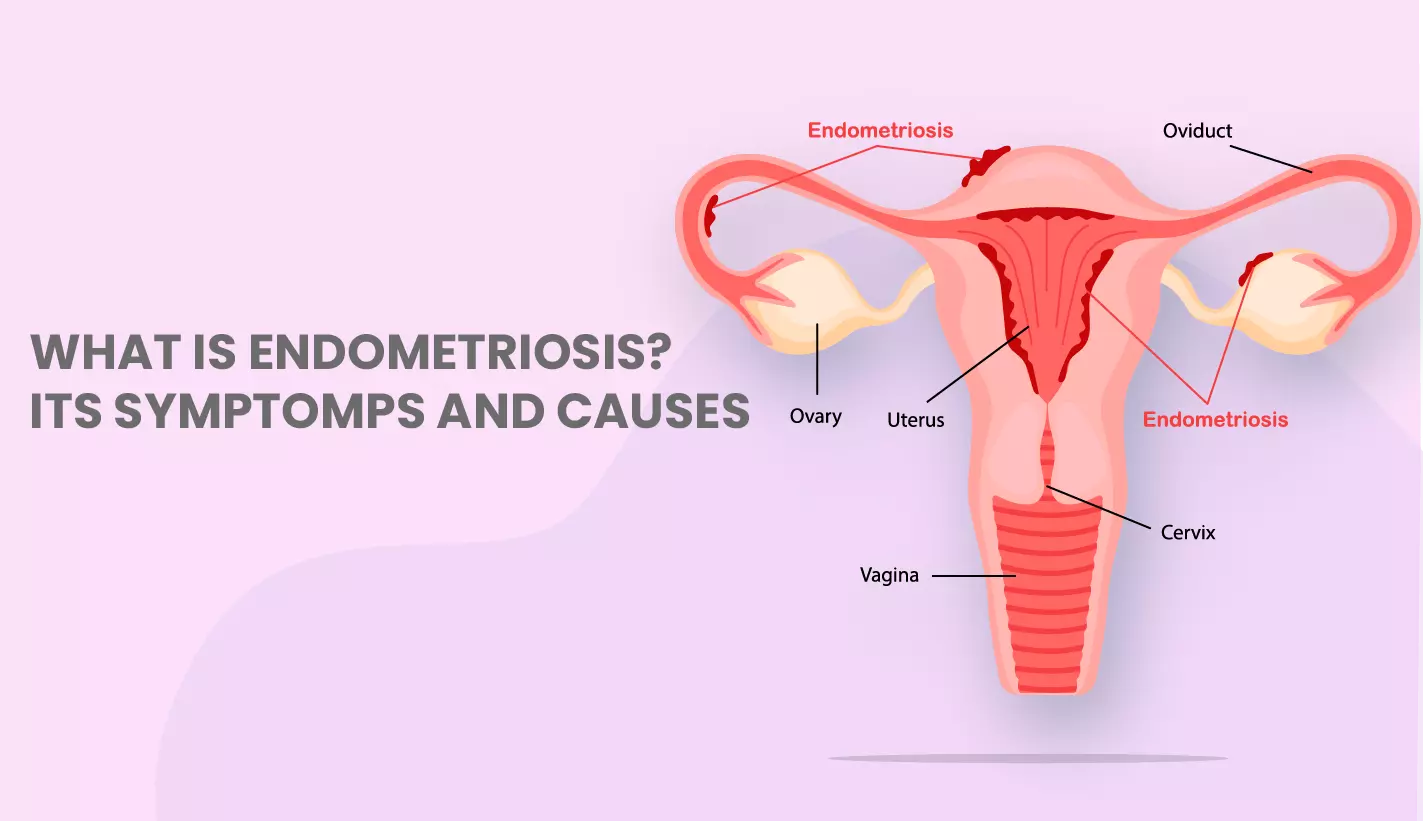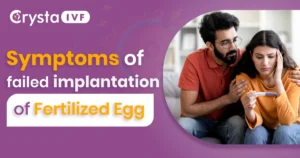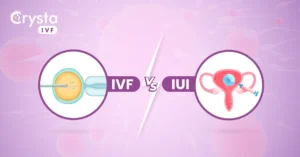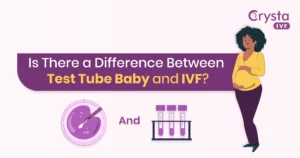Many women experience severe pain and fatigue during their menstrual cycle every month. In India, almost 25 million women are affected by this health condition. Not being aware of the state most of the time leaves it untreated or undetected, which leads to serious consequences such as a cyst that can grow or rupture, woman infertility, endometriosis symptoms, uterine enlargement, and extreme pain.
Usually, women in their reproductive years of 15–49 show endometriosis symptoms, and their lack of awareness and understanding results in unnecessary pain and discomfort along with several health conditions throughout their lives.
Despite its severity, endometriosis is rarely spoken about and understood due to the taboo associated with menstruation, making it almost impossible for women to gain knowledge and seek medical attention.
However, with the urge to break this stereotype and educate women about endometriosis, let’s come together and discuss the meaning of endometriosis, its symptoms, and what treatment options are available to cure this illness.
What is endometriosis disease?
Endometriosis is a gynaecological condition wherein the tissues that grow inside the uterine lining grow outside of it.
This may take place on the ovaries, fallopian tubes, and the tissue lining the pelvis. With endometriosis, exiled endometrial tissue continues to act as it normally would—it condenses, breaks down, and bleeds with each menstrual cycle.
It happens because the displaced tissue has no way to exit the body, and consequently, it becomes trapped. The resulting discomfort is so physically and emotionally excruciating that it can harshly dominate a woman’s life.
Endometriosis Symptoms
The symptoms of endometriosis vary from one person to another, with pain being one of the prominent symptoms.
In many cases, women having endometriosis usually don’t experience any condition or symptom associated with endometriosis.
In various cases, it has been observed that women plan to get tested for reproductive or gynaecology health conditions like endometriosis when they struggle to get pregnant even after trying for a year or more.
While in other cases, women experience unbearable pain because of endometriosis, they can’t perform their routine activities. Apart from severe pain, some other symptoms of endometriosis are if you wonder what the symptoms of endometriosis are.
- Infertility/subfertility
- Conception failure
- Constipation
- Pain and discomfort during bowel movements
- Heavy menstrual bleeding
- Pain during intercourse
- Joint pain
These are some of the common signs or symptoms of endometriosis.
Some common areas where endometriosis can be found include the belly button, peritoneum, bowel, fallopian tubes, bladder, vagina, and rectum. Common medical treatments to deal with endometriosis include medications and surgeries.
Also Read: What happens if endometriosis is left untreated?
What causes endometriosis?
Around 1 in 10 women of child-bearing age in the UK has endometriosis. The exact cause of endometriosis is yet to be ascertained. It is perceived that it happens due to blockages or damages to the fallopian tubes or ovaries. Endometriosis disease also has a genetic connection. Women with a mother or sister who has or had endometriosis are more prone to suffer from endometriosis and reproductive health conditions. Some other common causes of endometriosis are:
Retrograde menstruation
Retrograde menstruation is when a woman’s period flow takes the wrong route. Most women experience this to some extent, but if it’s abnormal, there are chances that it will cause pain and resultantly may lead to endometriosis. Retrograde menstruation is a condition that occurs when period blood flows back through the fallopian tubes into the pelvic cavity instead of flowing through the vagina.
Hormone transforming the cells outside the uterus
As per the research studies, another perceived cause of endometriosis could be when hormones change the cells outside the uterus into cells resembling the endometrial lining.
It is also believed that endometriosis may also happen when a woman’s abdomen areas begin to convert into endometrial tissue. The cause of this condition is yet to be figured out.
Some other possible causes of endometriosis can be:
- Disorders related to menstrual flow prevents the passing of blood and tissue from the body
- Genetic factors
- Short-length periods
- C-section or hysterectomy
- High amounts of the hormone estrogen
- Excessive consumption of caffeine and alcohol
- Immune disorders
Who can get endometriosis disease?
According to medical reports, any girl or woman who has menstrual periods can experience endometriosis. But the condition is more prevalent in women who are in their 30s and 40s.
Women are more likely to get endometriosis disease in the following conditions:
- Women who have never delivered a child/children
- Menstruation periods that last more than a week
- Menstruation cycle equal to or shorter than 27 days or fewer
- History of endometriosis
What endometriosis pain feels like?
While pain is the primary symptom of endometriosis, women often mistakenly consider it period pain or menstrual abdominal pain. But the pain or discomfort associated with endometriosis is worse than period pain. Sickness, painful intercourse, abnormal uterine bleeding, low back pain, spotting between menstrual cycles, diarrhoea, and blood in the urine (rare) are other bowel disturbances experienced by women having endometriosis.
Also Read: Yoga Poses for Endometriosis
Endometriosis Treatment Options
The traditional methods of treating endometriosis include prescribing pain relievers, hormonal birth control (pills, patch, ring, IUD, implant, etc.), treatments related to the condition’s hormonal and immune system components, and other surgical procedures.
Birth control medications are usually prescribed to women who are experiencing difficulty getting pregnant. Such patients are given medications to prevent the body from making hormones that promote ovulation, monthly periods and the growth of endometriosis.
The treatment is responsible for controlling the growth and development of endometriosis, and in some cases, it also leads to temporary menopause.
When women stop taking these medicinal treatments, their menstrual cycle gets normal after some time and their chances of conceiving increase.
When hormone therapy fails to work, fertility experts recommend surgical treatments to stop the occurrence of symptoms. During a surgical procedure, infertility specialists remove the endometrial patches.
Along with treatment, it is advised to change your lifestyle and adopt methods to improve your health condition.
Lifestyle tips to follow to cure endometriosis
As already told above, there is no particular cure designed to treat endometriosis, and surgical and medicinal methods are considered effective for the treatment of endometriosis. Lifestyle factors, however, can help you reduce the symptoms of endometriosis. Here are some effective ways to treat endometriosis by making certain lifestyle changes.
- Consult your doctor and manage your intake of Omega-3 fats because these are anti-inflammatory and healthy fats. You can get Omega-3 from plant-based foods and fish.
- Trans fats are considered to be unhealthy for fertility and overall health. When consumed in excess, trans fats start decreasing the levels of good HDL cholesterol and increasing bad HDL cholesterol levels. By limiting your consumption of trans fats, you can prevent your heart health as well.
- Doctors and fertility experts suggest limiting the consumption of red meat for women suffering from reproductive health disorders such as endometriosis disease.
- Eating plenty of green leafy vegetables, fruits, and whole grains can help reduce the symptoms of endometriosis.
- Limit intake of alcohol and caffeine.
- Minimize your intake of processed foods to control and manage the symptoms of endometriosis disease.
Talk to a fertility expert now!
It is important to understand the severity and long-term effects of diseases like endometriosis for early detection and treatment. If you experience any of the endometriosis symptoms mentioned above, feel free to reach out to a fertility expert at Crysta IVF best IVF Centre in Delhi for a timely diagnosis.
The fertility experts here have more than two decades of experience in treating patients with extra care and making sure that any woman looking forward to planning for a baby while getting diagnosed with endometriosis can do so with the help of In-vitro fertilization treatment.
Whether it’s about bringing positive news into your life or helping you stay physically and mentally fit throughout your IVF or other fertility treatment journey, Crysta IVF stands together with you in all circumstances with its unwavering dedication.




